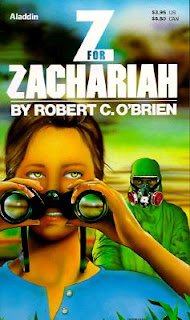Review Round-up: Bridge of Clay, The Wee Free Men, and The Silver Branch
I've been doing a chunk of reading in the last few weeks, along with finishing "Paper and Thorns" (if you need a refresher on this fairy tale novella, click here for all the snippets and behind-the-scenes posts). If you're interested in being a beta reader for "Paper and Thorns," leave a comment with your email (all comments are moderated, so if you don't wish to have it be public, just say so and I'll delete the comment after sending the story your way).
On to the reviews!
The long-awaited next book from the author who wrote The Book Thief, Bridge of Clay is the story of the five Dunbar boys following the return of their estranged father, Michael. He wants them to build a bridge with him, and all of them refuse, except for Clay. As Clay and his father work on the bridge, the oldest Dunbar boy, Matthew, narrates the stories of Michael, Penny (their mother), and their family. We're given insight into the histories of individual members of the Dunbar family and those who were major influences in their lives, such as Michael's first wife and Clay's close friend Carrie.
This book is convoluted, jumping back and forth between the present and multiple past times, flowing forth as Matthew tries to make sense of all that has happened and piecing together a family history. This book is brash and heartfelt. Its characters spout vulgarity and profanity out of habit, but (at least in the audiobook) Zusak's accent smooths some of this over (to my American ears).
The story is heartbreaking, carrying us through numerous tragedies in the lives of the Dunbars, but it is not without hope and joy. It is like a true memoir, losing none of its beauty for its fictional nature. Mature readers of The Book Thief and other powerful general fiction will find this one worthwhile.
The first in Terry Pratchett's Tiffany Aching subseries of Discworld books, The Wee Free Men doesn't feel like a Discworld book for the most part. It reminds me of Catherynne M. Valente's The Girl Who Circumnavigated Fairyland in a Ship of Her Own Making, though it is much older. Tiffany is a nine-year-old girl in a large family of shepherds. She is the best-behaved child, and therefore is often overlooked, especially in contrast to her younger brother Wentworth, who has a penchant for getting into trouble. One day, Tiffany sees tiny fairies floating down the river and shortly afterward she finds herself drawn into a conflict with a queen of Faerie.
This is one of the few books I've ever read that comes close to the feeling of reading Narnia for the first time. It offers maturity and maturation on the part of its main characters. It eschews common "follow your heart"-style morals for more realistic growth points. Tiffany understands that she doesn't love her younger brother, but that doesn't hold her back from trying to save him at all costs.
Woven throughout Tiffany's journey are memories of her time with her late grandmother. These scenes are some of the most powerful and touching in the book. Fantasy lovers of all ages, especially those who love Narnia, Valente's books, and strong protagonists with room for growth will enjoy this one.
The second in Sutcliff's series of novels following the Aquila family, The Silver Branch jumps ahead a century or so from The Eagle of the Ninth. Two cousins, one a surgeon and one a soldier, are united at a fort in southern Britain. They have several chance encounters with the newly declared Emperor of Britain and his closest adviser. After failing to warn the Emperor of his adviser's treachery, they go into exile in the north before being pulled into an underground rebellion against the traitor's rule.
Sutcliff continues to excel at writing strong friendship and showing the power of firm convictions and loyalty. The prose here is once again sparse but revealing, and the tale moves quickly from intrigue to intrigue. Fans of the previous book, Sutcliff's style, and Roman Britain will find this an enjoyable entry in the series.
On to the reviews!
Bridge of Clay
The long-awaited next book from the author who wrote The Book Thief, Bridge of Clay is the story of the five Dunbar boys following the return of their estranged father, Michael. He wants them to build a bridge with him, and all of them refuse, except for Clay. As Clay and his father work on the bridge, the oldest Dunbar boy, Matthew, narrates the stories of Michael, Penny (their mother), and their family. We're given insight into the histories of individual members of the Dunbar family and those who were major influences in their lives, such as Michael's first wife and Clay's close friend Carrie.
This book is convoluted, jumping back and forth between the present and multiple past times, flowing forth as Matthew tries to make sense of all that has happened and piecing together a family history. This book is brash and heartfelt. Its characters spout vulgarity and profanity out of habit, but (at least in the audiobook) Zusak's accent smooths some of this over (to my American ears).
The story is heartbreaking, carrying us through numerous tragedies in the lives of the Dunbars, but it is not without hope and joy. It is like a true memoir, losing none of its beauty for its fictional nature. Mature readers of The Book Thief and other powerful general fiction will find this one worthwhile.
The Wee Free Men
The first in Terry Pratchett's Tiffany Aching subseries of Discworld books, The Wee Free Men doesn't feel like a Discworld book for the most part. It reminds me of Catherynne M. Valente's The Girl Who Circumnavigated Fairyland in a Ship of Her Own Making, though it is much older. Tiffany is a nine-year-old girl in a large family of shepherds. She is the best-behaved child, and therefore is often overlooked, especially in contrast to her younger brother Wentworth, who has a penchant for getting into trouble. One day, Tiffany sees tiny fairies floating down the river and shortly afterward she finds herself drawn into a conflict with a queen of Faerie.
This is one of the few books I've ever read that comes close to the feeling of reading Narnia for the first time. It offers maturity and maturation on the part of its main characters. It eschews common "follow your heart"-style morals for more realistic growth points. Tiffany understands that she doesn't love her younger brother, but that doesn't hold her back from trying to save him at all costs.
Woven throughout Tiffany's journey are memories of her time with her late grandmother. These scenes are some of the most powerful and touching in the book. Fantasy lovers of all ages, especially those who love Narnia, Valente's books, and strong protagonists with room for growth will enjoy this one.
The Silver Branch
The second in Sutcliff's series of novels following the Aquila family, The Silver Branch jumps ahead a century or so from The Eagle of the Ninth. Two cousins, one a surgeon and one a soldier, are united at a fort in southern Britain. They have several chance encounters with the newly declared Emperor of Britain and his closest adviser. After failing to warn the Emperor of his adviser's treachery, they go into exile in the north before being pulled into an underground rebellion against the traitor's rule.
Sutcliff continues to excel at writing strong friendship and showing the power of firm convictions and loyalty. The prose here is once again sparse but revealing, and the tale moves quickly from intrigue to intrigue. Fans of the previous book, Sutcliff's style, and Roman Britain will find this an enjoyable entry in the series.






Comments
Post a Comment
What do you think?